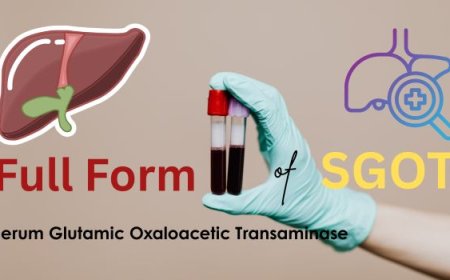NEET Chemistry Chapter Wise Weightage 2026 – Most Important Topics to Score 160+
Get NEET Chemistry chapter wise weightage 2026 with key topics, trends, and tips to score 160+ in Physical, Organic & Inorganic Chemistry.

If you aim for a mark of 160+ in NEET Chemistry, it is very important to know the NEET Chemistry chapter wise weightage 2026. Strategic study of the topics included in more points can help you answer most of the Chemistry questions in the NEET UG exam. At the same time manage your time better.
This article provides details about Chemistry chapter weightage for NEET 2026 for each class and advises you on important topics and methods to improve your preparation.
NEET Chemistry Syllabus Overview
The NEET Chemistry syllabus includes topics from both Class 11 and Class 12 NCERT textbooks. It is divided into three sections:
-
Physical Chemistry
-
Organic Chemistry
-
Inorganic Chemistry
Students doing their preparation for the NEET 2026, can look at the chapter-wise weightage for NEET 2026 Chemistry from both 11th and 12 classes seperately.
Read More: What’s New in NEET 2026 Syllabus?
Class 11 Chemistry NEET Weightage (2026)
Check out the expected class 11 Chemistry weightage in NEET based on previous trends:
|
Chapter |
Weightage (Approx.) |
|
Some Basic Concepts of Chemistry |
2% |
|
Structure of Atom |
2–3% |
|
Classification of Elements and Periodicity |
2% |
|
Chemical Bonding and Molecular Structure |
5% |
|
States of Matter: Gases and Liquids |
2% |
|
Thermodynamics |
3–4% |
|
Equilibrium |
3% |
|
Redox Reactions |
2% |
|
Hydrogen |
1% |
|
The s-Block Element |
2% |
|
Some p-Block Elements |
2% |
|
Organic Chemistry - Basic Principles |
4% |
|
Hydrocarbons |
3% |
|
Environmental Chemistry |
1% |
Focus chapters from Class 11: Chemical Bonding, Thermodynamics, Hydrocarbons, and Equilibrium.
Read More: NEET 2026 Exam Date
Class 12 Chemistry NEET Weightage (2026)
Now, let’s look at the class 12 Chemistry weightage in NEET:
|
Chapter |
Weightage (Approx.) |
|
Solid State |
2% |
|
Solutions |
3% |
|
Electrochemistry |
2–3% |
|
Chemical Kinetics |
3% |
|
Surface Chemistry |
2% |
|
The p-Block Element |
4% |
|
The d- and f-Block Elements |
3% |
|
Coordination Compounds |
5% |
|
Haloalkanes and Haloarenes |
2–3% |
|
Alcohols, Phenols, and Ethers |
3–4% |
|
Aldehydes, Ketones, and Carboxylic Acids |
4% |
|
Organic Compounds Containing Nitrogen |
2% |
|
Biomolecules |
2–3% |
|
Polymers |
1% |
|
Chemistry in Everyday Life |
1% |
Focus chapters from Class 12: Coordination Compounds, Aldehydes & Ketones, Alcohols & Phenols, and p-Block elements.
High Weightage Chapters in NEET Chemistry 2026
Students must prioritize these high weightage chapters in NEET Chemistry in their NEET 2026 preparation:
Physical Chemistry:
-
Thermodynamics
-
Equilibrium
-
Chemical Kinetics
-
Solutions
Inorganic Chemistry:
-
Chemical Bonding
-
Coordination Compounds
-
p-Block and d-Block Elements
Organic Chemistry:
-
General Organic Chemistry (GOC)
-
Aldehydes, Ketones & Carboxylic Acids
-
Alcohols, Phenols & Ethers
Tip: Organic and Inorganic Chemistry together often carry more weight than Physical Chemistry in NEET, so balance your focus accordingly.
Chemistry Chapter Weightage for NEET – Summary Table
|
Topic |
Approx. No. of Questions |
|
Physical Chemistry |
12–14 |
|
Organic Chemistry |
14–16 |
|
Inorganic Chemistry |
15–17 |
Read More: NEET UG Result Hearing 2025
Download Chapter Wise Weightage Chemistry for NEET 2026 PDF
Lots of students try to find chapter-wise weightage Chemistry for NEET 2026 PDF download that shows the weightage for all chapters in Chemistry for NEET 2026. You may create your own chapter tracker according to what is shown above or use an official one from reliable NEET websites.
NEET Chemistry Preparation Tips to Score 160+
- Use NCERT: Almost all NEET Chemistry questions are taken from NCERT.
- Prepare summary sheets: Primarily for reaction mechanisms and formulas.
- Practice Last Year’s Papers: Look for patterns and solve repeated questions.
- Make use of Flashcards: Useful for both facts and reactions in Inorganic Chemistry.
- Attempt Mock Tests: Simulate real-exam conditions.
Read More: NEET 2025 AIIMS Cut Off
NEET Chemistry Difficulty Level – Year-Wise Analysis
Familiar with the difficulty trend of NEET Chemistry can help aspirants plan their preparation smartly. Aspirants can check how tough the Chemistry section was in the last few years from this table:
|
Year |
Easy Questions |
Moderate Questions |
Difficult Questions |
Toughest Subsection |
|
NEET 2022 |
18 |
22 |
5 |
Organic Chemistry |
|
NEET 2023 |
20 |
20 |
5 |
Physical Chemistry |
|
NEET 2024 |
16 |
24 |
5 |
Inorganic Chemistry |
|
NEET 2025 (Expected) |
18–20 |
22–24 |
4–5 |
Likely Organic |
Trend Summary:
-
Organic Chemistry is often tougher due to conceptual reactions.
-
Inorganic Chemistry is mostly based on NCERT but requires strong memory.
-
Physical Chemistry is heavy in calculation and needs formula based practice.
Suggestion: In recent years, the balance among all three sections has improved, making comprehensive preparation more important than selective studying.
Read More: NEET High Court Judgement
Weightage Comparison: NEET Chemistry vs Physics vs Biology
Knowing where Chemistry stands in terms of marks can help you utilise your time and effort effectively across subjects.
|
Subject |
Total Questions |
Total Marks |
Weightage (%) |
|
Physics |
50 |
200 |
33.3% |
|
Chemistry |
50 |
200 |
33.3% |
|
Biology |
100 |
400 |
66.6% |
Insight: No doubt Biology carries the most weight, but the Chemistry section can be a game-changer for high scorers. Most toppers score 160+ in Chemistry due to better predictability.
Strategy to Balance All Three:
-
Biology: Focus on NCERT line-by-line.
-
Chemistry: Prioritize NCERT + Previous Year Questions + Problem Solving.
-
Physics: Practice-based with daily numericals.
Chapter-Wise Question Trends from Previous 5 Years (2020–2024)
Students can analyse the chapter wise question trends for this table. The table shows how many times each Chemistry chapter appeared over the last 5 NEET exams.
|
Chapter Name |
2020 |
2021 |
2022 |
2023 |
2024 |
Total |
|
Chemical Bonding & Structure |
3 |
2 |
2 |
3 |
3 |
13 |
|
Thermodynamics |
2 |
2 |
1 |
2 |
2 |
9 |
|
Coordination Compounds |
2 |
3 |
3 |
2 |
3 |
13 |
|
Haloalkanes and Haloarenes |
1 |
2 |
2 |
1 |
2 |
8 |
|
Biomolecules |
1 |
1 |
1 |
1 |
1 |
5 |
|
Alcohols, Phenols and Ethers |
2 |
2 |
2 |
2 |
3 |
11 |
|
The Solid State |
2 |
1 |
1 |
1 |
1 |
6 |
|
Chemical Kinetics |
2 |
1 |
2 |
1 |
2 |
8 |
|
p-Block Elements |
3 |
3 |
2 |
3 |
2 |
13 |
|
GOC (General Organic Chemistry) |
3 |
2 |
2 |
2 |
3 |
12 |
Note: Chapters like Chemical Bonding, p-Block, Coordination Compounds, and GOC appear repeatedly. Students must focus on these for maximum returns.
Being smart with chapter wise weightage for NEET 2026 Chemistry will help you a lot during your preparation. No matter if you are reviewing an existing schedule or starting from the beginning, concentrating on important chapters with high weightage will allow you to aim for a score over 160 in Chemistry.
What's Your Reaction?













![What is the Difference Between NExT and NEET PG? [Updated 2025]](https://neetcoachingsikar.com/uploads/images/202504/image_430x256_680fd17ee9715.jpg)














![How Many Candidates Appeared in INI CET 2025? [Official Numbers Inside]](https://neetcoachingsikar.com/uploads/images/202505/image_140x98_682db1a9daa26.jpg)

